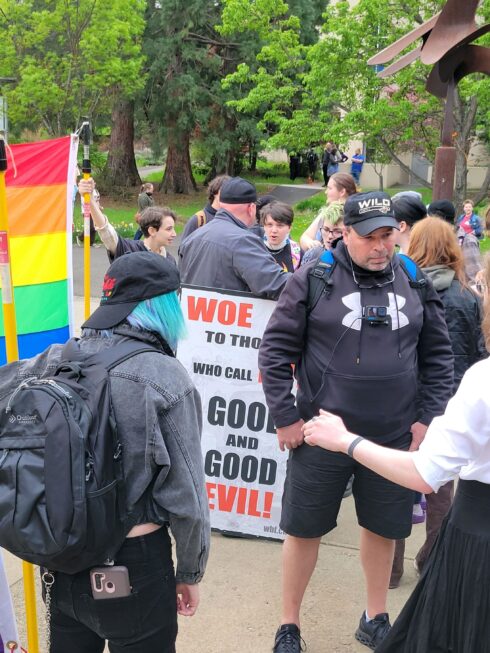A review of the facts–Laverne Cox presence on the Southern Oregon University campus recently is anything but a distant memory. Students filed into a free pizza lunch Monday to review her appearance and what the transgender star of the series, “Orange is the New Black” had to say with a rare mixture of engagement and commitment. The bottom line is that her appearance was a major win for the university.
A mixture of students and community members filled the lobby of the SOU Music Recital Hall on Nov. 19, with the line stretched from the door of the recital hall down one hallway, doubled back up the hallway, then spread the distance of the lobby, and nearly wrapped
itself around back to the hall door. And that doesn’t include all the people at the Stevenson Union who watched a livestream of the event because they weren’t able to get tickets before the Cox talk sold out.
Laverne Cox often travels around to colleges, such as SOU, and other locations to speak “about moving beyond gender expectations to live more authentically,” according to her website.
The recital hall was packed before the lecture began, and the majority of people had taken their seats, the remaining 20 empty seats were given away in a raffle to those in the Stevenson Union who were watching the live stream.
Cox introduced herself as an actress, dancer, activist, and much more. She said she likes to introduce herself this way because “I’m not just one thing.” Cox went on to talk about her life as a trans individual from being born to a single mother in Alabama, to she and her brother being two of the only three black kids at the Alabama School of Fine Arts, to hanging with club kids in the night clubs of New York.
Her lecture was not merely based in her personal experience though. Cox spoke about the trans community as a whole, and socio-cultural aspects of the gender binary system in our country. She named many feminist thinkers and their theories to better express what it means to
be a woman, and that it means that women are not born but made. Thus, borrowing from Sojourner Truth, Cox asked, “Ain’t I a woman?” She referenced Judith Butler, Simone de Beauvoir and Bell Hooks as major influences on her thinking growing up. She also frequently listed statistics about the trans community in terms of crime rates, harassment in schools, suicide, and unemployment while pointing out how much higher they were than average population statistics.
Cox declared that the trans community is in a state of emergency. Seventy-eight percent of trans students in K-12 schools are bullied or persecuted, and this leads to kids dropping out. Along with un-accepting parents turning their children away, this leads to much higher
unemployment and homeless rates in the trans community according to Cox. Forty-one percent of the trans community has reported trying to commit suicide in the past.
Cox repeatedly told the crowd that we need to push for creating more gender-identity friendly areas, and that we need to have the “hard conversations.” Conversations about how people identify themselves, how they feel, and how to respect each other. She points out that
without these conversations, we do not grow, and thus we do not learn.
For the last 15 to 20 minutes of the presentation, Cox took questions from the audience. Questions ranged from advice on how family members can best support their trans or transitioning family and friends, explanation of feminist theory, and her opinions on the current
aspects of transgender culture around the world. As the night drew to a close, she thanked the crowd for coming to see her, and it was returned with a standing ovation as she excited the stage with a curtsy.



